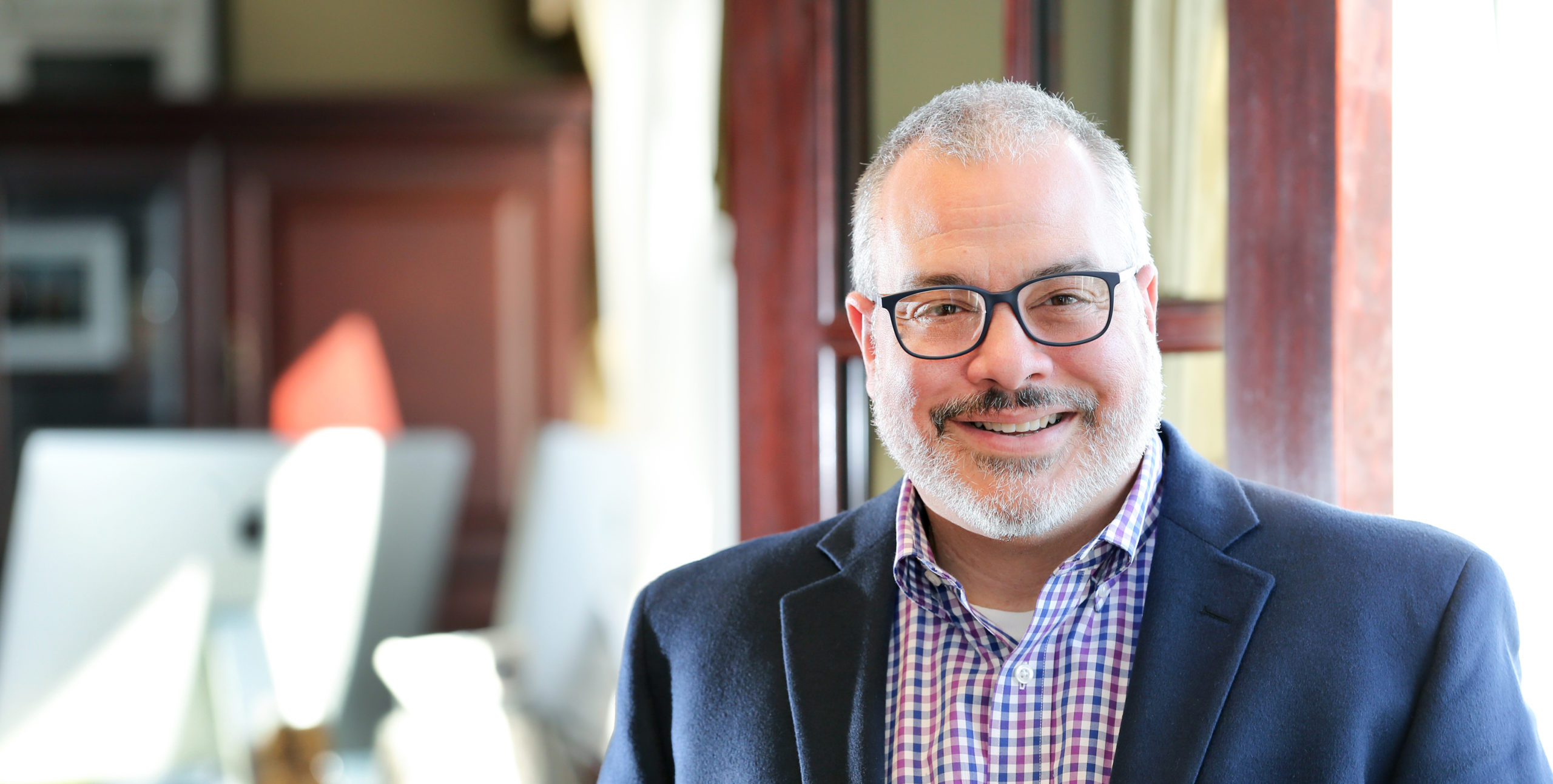By Joe Bertolino / Photography by Stan Godlewski
In 2012, when I was a candidate for the presidency of small college in northern New England, a professor asked me how I would deal with homophobia in that relatively conservative area.
I replied that it would be a great conversation to have as a college community, and I would welcome the discussion. I wasn’t about to hide my identity as a gay man. After all, I wasn’t being recruited to be the “gay college president,” but the “president of the college.” I got that job.
Soon after, I received letters of welcome and support. On occasion, I would receive a letter from an anonymous community member quoting scripture from the Bible and saying that they were praying for me. When this occurred, I joked to my colleagues that the job was challenging enough, and I would welcome all the prayers I could get!
At that time, LGBTQ individuals had just begun to make inroads into presidential positions in higher education.
Indeed, when I was a young professional beginning my career in higher education in the early ’90s, it was almost unheard of for a gay man to be a dean or vice president, let alone to hold a chief executive position. The gay glass ceiling, we called it.
We’re fortunate now to be in a time when increasingly more colleges and universities are willing to set aside historical bias and truly recruit and hire the best person for their institutions, including leaders who are LGBTQ.
A major breakthrough came in 2010, when 10 “out” presidents formed LGBTQ Presidents in Higher Education. A vice president at the time, I met with the group and was encouraged to confirm that career advancement to the highest level was indeed possible for LGBTQ individuals in academe.
Five years later, I was attending a meeting of this organization in Chicago when the U.S. Supreme Court announced its decision to legalize gay marriage. Spontaneously, we participated in the Chicago Gay Pride parade – each of us holding an individual sign that highlighted our institutions. Mine read: “I am president of Lyndon State and I’m out!” The response was overwhelmingly positive. It was a powerful moment.
Now, in my fourth year leading Southern Connecticut State University, and my eighth year as a college president, I don’t identify as a gay president. I don’t feel the need to. Rather, I just want people to know me as a president who happens to be gay. Because while my orientation may inform my perspective, it’s only one piece of a complex puzzle that forms my identity.
I came to acknowledge and understand my identity as a gay man during the years of the AIDS crisis. Like many in the LGBTQ community, I faced discrimination on both a personal and professional level. While painful, these experiences helped shape who I am and informed my world view. Moreover, these challenges and obstacles fueled my desire to focus on social justice and equity issues, first as a social worker and then as a university administrator in student affairs. I have no doubt that these life experiences have made me more empathetic, more present, more aware, more intentional and more thoughtful – in short, a better leader.
The culture change that we’ve seen in the last 10 years has had a profound effect on campuses. I am one of more than 100 LGBTQ chief executives nationwide. My time and attention as president expands beyond sexual and gender identity into multiple areas of social justice, including issues around race, ethnicity, religion and immigration status.
We have an open, welcoming community at Southern and I’ve found that this generation of students has a broader set of experiences which leads to their being more open and accepting of others. LGBTQ students are becoming more comfortable with their identities much earlier now – in high school, even middle school – and their peers have been exposed to this and understand it.
That is not to say that homophobia, transphobia, and heterosexism have gone away, and we must not be lulled into believing that discrimination will not occur on college campuses. But the main challenges for higher education administrators now revolve around questions of gender identity, and how to ensure that we have the right policies and supports in place to meet the needs of trans and non-binary students.
At Southern, students can now choose the name they wish to identify by when they register for classes. We have gender-inclusive bathrooms and have enhanced our services in areas such as residence life, counseling, and health services. We have taken important steps to promote gender studies in our curriculum, and introduced inclusive training and practices in our student support areas. And we have applied to be listed on the Campus Pride Index, a national compilation of LGBTQ-friendly colleges and universities. But there is still more to do.
At the end of the day, all students – regardless of identity – want to know that someone cares, and that they are safe and supported. They want to know that there are resources available to them and know how they can access them. They want to know that there are opportunities for them to succeed.
Ensuring social justice for LGBTQ students, therefore, is not simply a matter of improving conditions for the immensely diverse group of individuals who identify as members of this community.
Rather, it’s a matter of instilling an ethic of care: building an inclusive community in which every member feels valued and is treated with dignity, respect, kindness, compassion, and civility.
And in doing so, we can set an example for society to follow.
Joe Bertolino, Ed.D., is president of Southern Connecticut State University in New Haven.






More Stories
Connecticut Sun: Playing for Good
Call Him Mister Connecticut: Jean Carlo Salazar’s Journey as Nurse, Model and Pageant Contestant
Ensuring a Seat at the Table